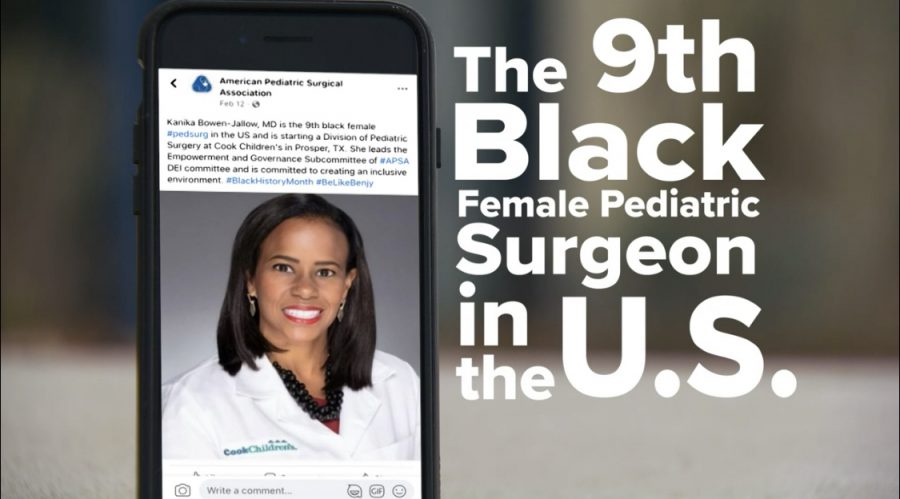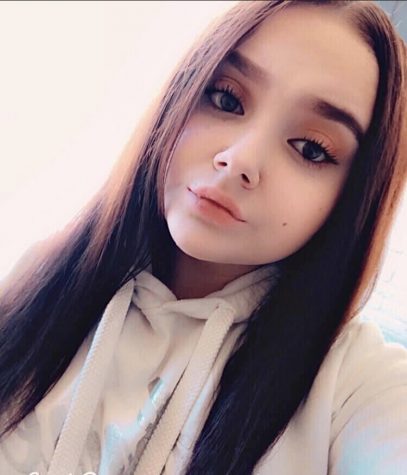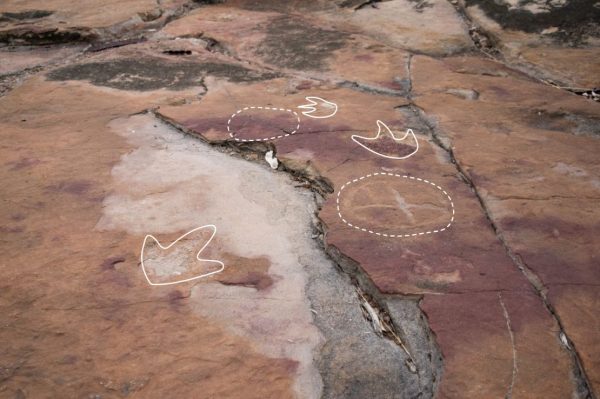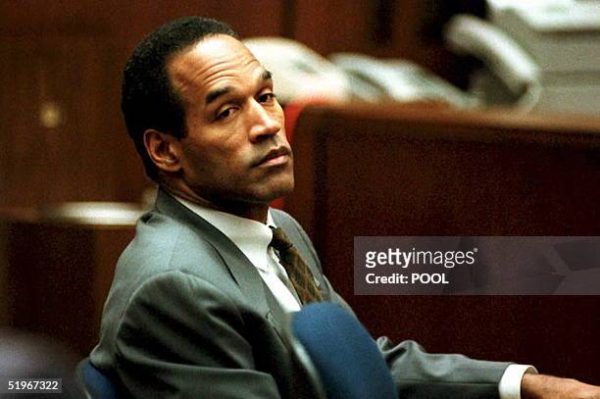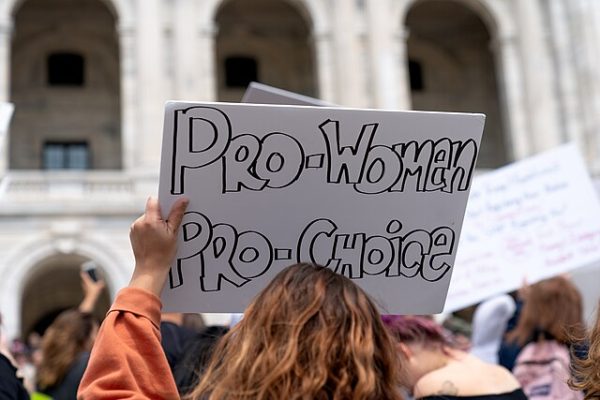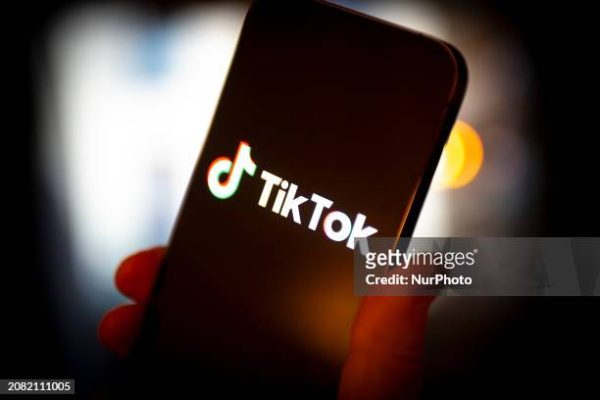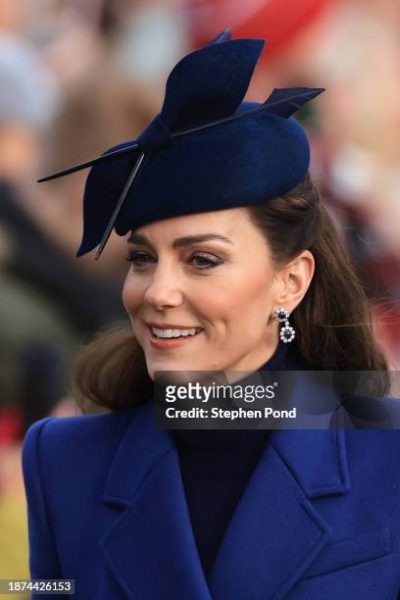Woman Makes History Becoming 9th Black Female Pediatric Surgeon
May 7, 2021
According to the American Pediatric Surgical Association (APSA), Dr. Kanika Bowen-Jallow has been titled as the ninth Black female pediatric surgeon in the United States. As a Texas native, she went through college and medical school where she later completed her residency in her home state. She even said that medical school was the very first time she encountered Black physicians in ANY field.
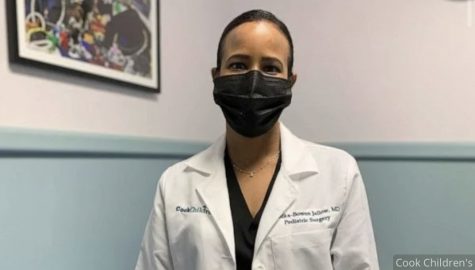
In her career, she would go to conferences in her field and that’s when she started seeing fellow Black female surgeons. “At conferences, you sort of gravitate toward each other,” she said, being one of only a few Black women in her field. “I was used to being a ‘one of the only.’ Did that make it easier? No, but I kind of knew the struggles that went with it.”
Kanika knew just by the second grade that she always wanted to become a surgeon, making her the first physician in her family. For her, it was the determination that pushed her past discrimination she has experienced along the way.
As a surgeon, she found herself being taken back by comments made by people around her saying, “I remember when I was in residency and I had my white coat on and was a surgical resident and a woman looked at me and asked if I was there to change the sheets. I was rather taken aback by that, but of course it wasn’t the first or the last slight I’ve ever encountered.”
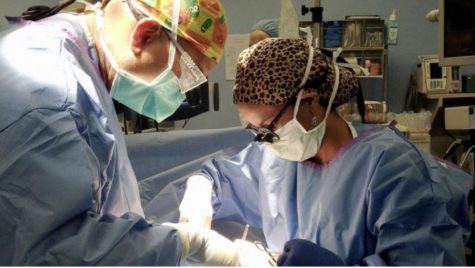
Studies have found that all across the country “less than 3%” of doctors in 2019 were identified as Black or African-American. The low number of Black doctors in the U.S. has remained largely stagnant for the past several decades. Kanika, one of the three black women in her medical school class of over 100 students, recalled being told by a high school teacher that she would never be a physician because she was not good at math. Instead of letting the words of those teachers discourage her, she now gives out her email address and cell phone number to high school students interested in medical school so she can help them reach their future goals and dreams.
It’s a quite unique moment for Dr. Bowen-Jallow when young black boys and girls see her in her office. “Their eyes just light up and they get this big smile and they’re just in awe,” she said. “For me, I love it. I think it’s wonderful because I have small kids and I know that what we do and what we say to them at a young age will impact them when they grow up.” Bowen-Jallow leaves off saying, “Even in my personal life, when I go see physicians, when I see a physician of color, I find that there is a little bit longer that we talk, a little bit more information that is provided, and maybe that’s because they don’t have this implicit bias. I know that they have their own experiences and they bring those experiences to clinic and that really opens up the conversation.”

